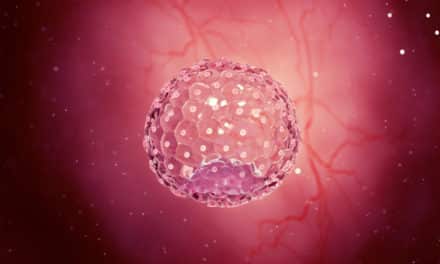If you are trying to get pregnant, it is essential that you know when your most fertile days are. There are several methods for finding out: calculators, mobile apps, ovulation tests, measuring your basal temperature, etc. But it doesn’t hurt to be well informed so that you don’t leave everything to these tools, especially if your periods are irregular or if you experience any imbalance that could affect ovulation or your menstrual cycle. Besides, you have probably heard many things on this subject, and not all of them are true. Dr. Piotr Sokol, a fertility specialist at Dexeus, tells us what is true and what is false regarding fertile days.
Ovulation calculators are only useful if you have 28-day cycles – FALSE
What matters here is regularity, rather than length. If your cycles are shorter or longer than 28 days — but regular — you can still estimate your ovulation date. However, ovulation calculators are statistically-based tools. The data provided are approximate dates based on regular cycles of between 20 and 35 days. So, although ovulation calculators can be effective, it is important that you know your cycle well.
There are only two actual fertile days in each cycle – FALSE
In general, the fertile period lasts 5 days. It starts 2 to 3 days before ovulation, continues on the day of ovulation and ends one day after ovulation. The reason for this is that, unlike the egg, which can only be fertilised within 24 hours after ovulation, sperm can survive in a woman’s body for 48 to 72 hours. Therefore, if you have intercourse two or three days before ovulation, you can also get pregnant.
If you have irregular cycles, ovulation tests are more reliable – TRUE
If your cycle is irregular, it can be more difficult to get your day of ovulation right with ovulation calendars. In this case, you can choose to do an ovulation test, but it is best to consult your gynaecologist for advice.
If your ovulation test is positive, you are ovulating right at that moment – FALSE
Ovulation tests only measure a rise in luteinising hormone (LH) in your urine, but ovulation usually occurs within 24 to 36 hours after that. It is therefore advisable to have sex on the day you test positive and for 3 next days.
The more sex you have on those days, the more likely you are to get pregnant – FALSE
To increase your chances of getting pregnant, you should have sex during your fertile period, but don’t get obsessed — it’s better to feel like it than to force yourself.
The sperm that fertilises the egg is the fastest – FALSE
It is not only a matter of speed, but also of morphology, resistance and strength, as there are many barriers that can hinder access to the egg: the acidity of the vaginal pH, the cervical mucus, the complex anatomy of the female reproductive system (which causes some of the sperm to get stranded along the way), the action of white blood cells (which have a tendency to destroy sperm)… Moreover, it has been proven that they work as a team, some helping others to overcome difficulties more easily.
On those days you have a greater sex drive – TRUE
Oestrogen levels rise after your period and peak during ovulation, which can lead to an increase in sex drive, although it doesn’t happen for all women or every time. After ovulation, on the other hand, oestrogen levels drop and progesterone levels rise, which can lead to a decrease in sexual desire.
A clear, thin mucus discharge indicates you are ovulating – TRUE
As ovulation approaches, cervical discharge becomes thinner and clearer. Its appearance and texture are very similar to that of an egg white. The purpose of this discharge is to help sperm travel up the cervix to fertilise the egg. It also helps the sperm survive, because thicker mucus acts as a barrier and makes it more difficult for the sperm to pass through.
Basal temperature is an unreliable method – FALSE
If you measure it properly, it is reliable. Basal temperature is your body temperature when you are completely at rest. Ovulation and the resulting presence of progesterone causes a slight rise in temperature, but you should measure it right after waking up in the morning. For better monitoring, you should check your temperature throughout the month.
If you use hormonal contraceptives, you should stop using them and wait until you have a full menstrual cycle and a natural period before trying to conceive – FALSE
As soon as you stop your contraceptives, you can start trying to get pregnant. In fact, for women with irregular periods, it is advisable to start right away. However, in most cases, when you stop taking/using contraceptives, your period will come before you even have a chance of conceiving.
If I have sex on those days but don’t get pregnant, could I have a fertility problem? – FALSE
Not necessarily, as pregnancy is not always achieved on the first try. Therefore, you should give yourself some time to try. As a rule of thumb, if you and your partner have no fertility problems and you are under 35, you can give yourselves a trial period of up to a year. After the age of 36, doctors advise you consult a gynaecologist if you haven’t been successful after 6 months.
We hope you found this post useful!
Please remember that if your cycles are irregular, or if you have any health issues or concerns, the best thing to do is to see a gynaecologist.














